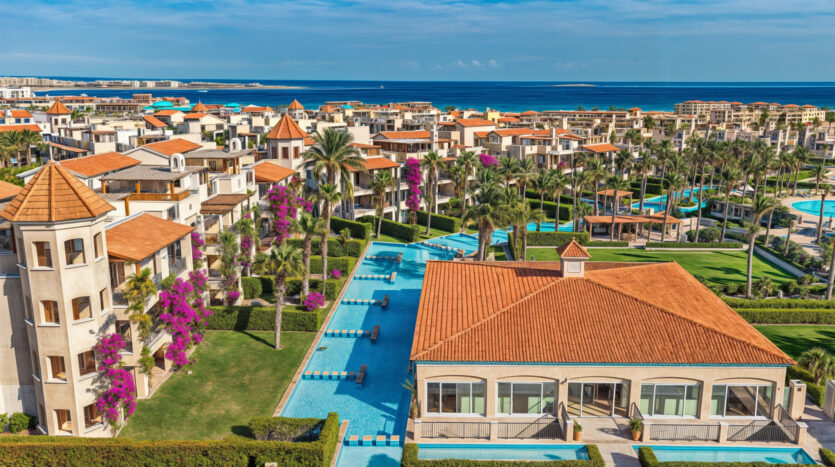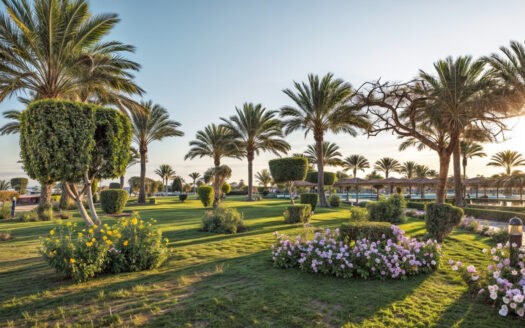Legal Guide for Foreign Buyers in Egypt: What You Need to Know
Introduction
Egypt is among the few countries in the region that welcomes foreign property buyers with clearly defined ownership rights and investor-friendly laws. From Red Sea resorts like Sahl Hasheesh and Soma Bay to urban developments in New Cairo, the country offers a variety of legal pathways for expats and non-residents to purchase, own, and resell real estate. This legal guide for foreign buyers in Egypt outlines the key laws, requirements, and protections you need to know before investing.
Can Foreigners Legally Own Property in Egypt?
Yes. Foreign nationals are allowed to purchase and fully own residential real estate in Egypt. The country’s real estate laws grant foreigners:
- Freehold ownership in most resort and urban areas
- The right to own up to two residential properties
- Ownership rights to properties up to 4,000 sqm each
- Right to lease, resell, or bequeath their property
- Eligibility for renewable residency based on property value
Foreigners can buy properties in locations such as Hurghada, El Gouna, Sahl Hasheesh, Soma Bay, and most of New Cairo without restrictions. In some strategic zones (e.g., border areas), special approvals may apply.
Understanding Ownership Types in Egypt
Foreigners can acquire property through two main legal ownership types:
1. Green Contract (Registered Title Deed)
- Registered through the Real Estate Public Notary (Shahr El Aqary)
- Provides full legal title and maximum ownership protection
- Often used for ready, registered units or resales
2. Developer Contract (Private Contract)
- Used for most off-plan or gated compound purchases
- Legally binding under Egyptian civil law
- Grants ownership, resale, and rental rights
- Typically includes unit plan, payment terms, and delivery schedule
Both forms are valid and recognized, especially in areas like El Gouna, Sahl Hasheesh, and Soma Bay where developers operate under licenses approved by the Egyptian government.
Legal Steps to Buying Property in Egypt as a Foreigner
Step 1: Select a Property
Choose a location that aligns with your goals—rental income, resale, or personal use. Top areas include:
- El Gouna: Luxury resale and lagoon living
- Sahl Hasheesh: Resort-style beachfront compounds
- Hurghada: Budget-friendly urban zones
- Soma Bay: Premium villas and golf real estate
- New Cairo: Modern urban investment opportunities
Step 2: Sign a Reservation Contract
Once you’ve chosen a unit, you’ll place a deposit (typically $2,000–$5,000) and reserve the property for 2–4 weeks while the legal process begins.
Step 3: Hire a Local Real Estate Lawyer
A licensed attorney will handle:
- Due diligence on ownership/title status
- Reviewing the developer’s license and registration
- Drafting/reviewing bilingual contracts
- Managing registration or Power of Attorney (POA) if buying remotely
Step 4: Sign the Sales Contract
The full agreement will outline:
- Payment plan
- Delivery timeline
- Ownership rights and obligations
- Cancellation and refund clauses
Most developers accept international bank transfers in USD, EUR, or GBP.
Step 5: Register the Contract or Apply for a Green Contract
- If the unit is eligible, your lawyer can apply for title deed registration
- For off-plan or compound units, a notarized developer contract is sufficient for ownership and resale
Residency and Tax Considerations
Residency
Property ownership may qualify foreign buyers for a 1–3 year renewable residency permit, especially for registered or high-value units.
Taxation
- No capital gains tax on personal residential sales
- No inheritance tax
- Rental income tax may apply if the unit is leased commercially
- Annual maintenance fees apply based on compound policies
Egypt offers one of the most tax-efficient property environments in the region.
Common Legal Mistakes to Avoid
- Not verifying developer licensing or land ownership
- Signing Arabic-only contracts without a legal translator
- Making unrecorded cash payments
- Failing to confirm Green Contract eligibility
- Not using a licensed real estate lawyer
A transparent legal process is the foundation of a successful property investment. Reputable developers and agents usually assist in all legal steps, but you should always appoint an independent attorney to protect your interests.
Conclusion
Understanding the legal process of buying property in Egypt as a foreigner is critical to a secure and successful investment. Whether you’re buying in El Gouna, Soma Bay, or New Cairo, Egypt’s real estate laws are designed to support foreign ownership with clarity, rights, and flexibility.
Ready to explore legal investment opportunities?
Browse verified Egypt listings on Buildix or speak to a licensed legal advisor for a custom roadmap and contract review.
Mini FAQ
Can foreigners own property in Egypt legally?
Yes. Foreign nationals can buy freehold property in Egypt in designated residential zones with full ownership rights.
What legal documents are required for buying property in Egypt?
A valid passport, reservation and sales contracts, tax ID (if applicable), and proof of payment. A lawyer handles registration or notarization.
Is title deed registration required in Egypt?
It’s not always required but is recommended. Many buyers hold developer contracts legally recognized under civil law. Green Contract (title deed) offers the highest level of ownership protection.







